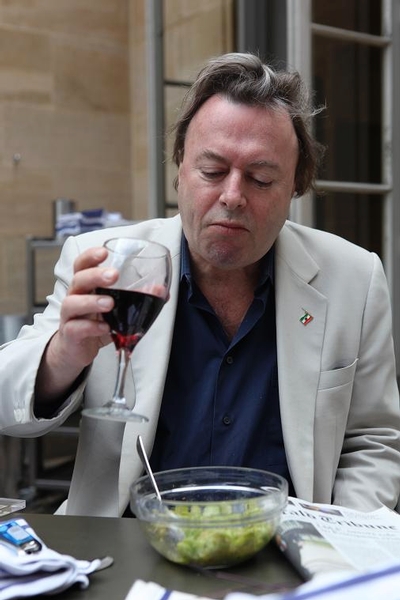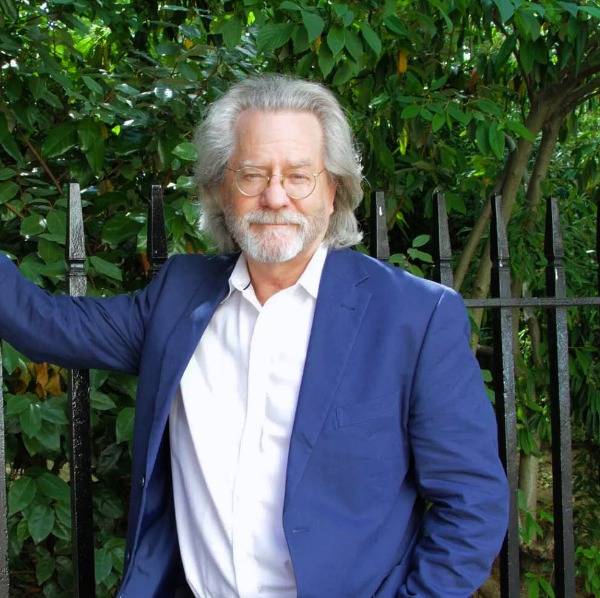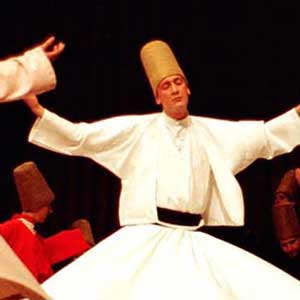
It struck me at the time, and it strikes me now, that Amis’s words identified something in Christopher’s writing (and about Christopher’s character) that is too often overlooked: namely, its (and his) brightness. His book titles, many of which are either combative or “negative”, are not readily indicative of this quality. Glancing at my bookshelves, I notice, among the many volumes that rest there, Prepared for the Worst, God is Not Great, No One Left to Lie To, For the Sake of Argument, The Trial of Henry Kissinger, The Monarchy: A Critique of Britain’s Favourite Fetish – and now, his last and largest collection of essays, Arguably. The ambience here is hardly one of unalleviated effulgence, but the contents of the books glow. And what makes them glow (in addition to their often very beautiful (and often very funny) prose) is the fact that, when Christopher was being hostile or combative or dismissive or trenchant, he was nearly always doing so in defence of, or in celebration of, a principle. (It was this commitment to principled opposition, rather than mere nay-saying,that led Christopher to object to his publisher’s use of the word “contrarian”.)
Perhaps the most central of those principles was a belief in the good, and the pleasure, of argument – not just for its own sake, but as a way of testing first principles, and of refining one’s own position by subjecting it to the strongest counter-argument available. His greatest wish for his children was that they should encounter struggle, and when others could be found, say, relaxing by the pool, Christopher could be found at the bar, seeking out disputation. He really did believe in the dialectic (the Trotskyism of his youth might have fallen away, but his training in dialectical thought never left him), and to the empty charge that his polemic risked generating more heat than light, Christopher would often respond that in the absence of heat you wouldn’t get any light. Consensus, always, was the enemy. And because consensus was the enemy, it followed that each of us, pace Milton, must be at liberty to read, write, and think freely.
It was this essentially anti-totalitarian position that lay behind Christopher’s hostility to religious belief. Yet the hostility was really, or also, a form of love, and it is instructive that, after September 11 2001, Christopher felt that a war had been inaugurated, that a battle had recrudesced, between “everything I love and everything I hate”. We have heard endlessly about the hates. Mother Teresa was “a thieving fanatical Albanian dwarf”; Princess Diana (or “the Spencer girl”, as Christopher preferred) a “simpering Bambi narcissist”. Bill Clinton should have committed suicide (“though I fear he lacks the dignity”), and he was delighted to hear that, when he died, Jerry Falwell’s “immense carcass” was found “on the floor of his obscure office”, having “skipped the rapture”. But the hatred – of figures who claimed to be helping people to be free while really wrapping them in chains - was an index of the intensity of the love: love of life (always this life); love of truth; love of justice; love of beauty; love of wit; and love of love, a single moment of which, Christopher wrote (after Bertrand Russell and in the opening to his collection, Love, Poverty, and War)“was worth the whole of the rest of life . . . to the extent that I can regard the death I otherwise rather resent as laughable and impotent.”
And then there was, finally, the love of language, and of the freedom and the pleasure to be found in literature, the playground of the ironic mind. There was, for Christopher, “an all out confrontation between the ironic and the literal mind: between every kind of commissar and inquisitor and bureaucrat and those who know that, whatever the role of social and political forces, ideas and books have to be formulated by individuals”; and it was in writing about those individuals that he was at his best. His literary essays stand comparison with the finest occasional criticism of his generation. This was the work of which he was proudest (he felt a responsibility to write as much as he did about politics and religion); he always wanted it to be recognised that he had written a great deal about literature; and in the days I spent with him back in 2010, our conversation was devoted almost exclusively to writers and writing.
And what days they were. I hardly knew him, but he treated me as an equal and as a friend, and gave the lie to the idea that you should never meet your heroes (even if, as an admirer of Hitchens, you are not supposed to have heroes). I remember feeling that there was no disjunction, none at all, between the man I knew from the page and from the screen, and the man sat next to me in the car, in the bar, and over the table at lunch. (At one stage, while Christopher was engaged in a fairly serious perusal of the wine list, I remembered an article he had written about the barbaric practice (his phrase) of waiters pouring your own drink for you. Enter Christopher: “Sir? I think I shall be in charge of that.”) He was incredibly generous, and great fun to argue with (a disagreement over the phrasing of a PG Wodehouse simile lasted over 24 hours, and cost him £10). But above all he was just very funny, and very kind.
When the time came for us to part, he was stood outside an event to promote his memoir, talking, as he loved to, to members of the audience. I edged my way over, clutching the copy of Wodehouse that I knew would resolve our dispute. After showing him the relevant pages, and thanking him for his company, I indicated that I had to leave. The wind lifted his pewter fringe. He removed a cigarette from his mouth, raised his glasses, and an extended a hand: “My dear chap”, he said. “We’ll meet again.”
Those were the last words he said to me: we never did meet again. But after he had been diagnosed with the malady that would lead to his death, we did share a very light correspondence (“Quit while you are young”, he once wrote. “You do NOT want what I have.”) It was around this time that Christopher wrote the first of his beautifully stoic essays about his illness. He had, he said, alluding to Edna Vincent Millay, lived a life in which he had burned the candle at both ends. But the flame had given a lovely light. In the volumes and volumes arranged on my shelves (and on the shelves of countless others), that light will shine on. But without Christopher around in person, everything will always seem that little bit darker.

